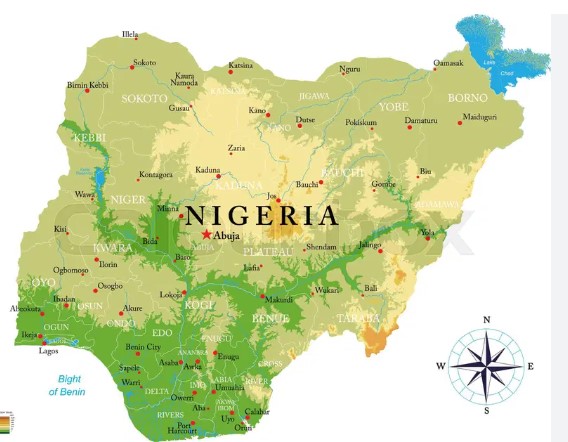As Nigeria prepares for another constitutional amendment cycle, one of the most hotly debated issues resurfacing is the demand for the creation of new states. From the creeks of the Niger Delta to the rugged terrains of the North-East, various ethnic and regional groups are intensifying their calls to redraw Nigeria’s federal structure.
The House of Representatives Committee on Constitution Review, led by Deputy Speaker Benjamin Kalu, has received a staggering 46 separate requests for new states, alongside 117 proposals for additional local government areas. “We are receiving numerous submissions, and each will be evaluated on constitutional merit, economic viability, historical relevance, and administrative necessity. The process will not be sentimental,” Kalu affirmed.
Although Nigeria’s regions often differ ideologically, the demand for new states appears to be a rare unifying factor. The breakdown of submissions cuts across all six geopolitical zones, with the North-Central leading the charge.
According to the committee’s data, the North-Central has tabled 12 state creation proposals. This push is largely attributed to the region’s ethnic diversity and ongoing cries of marginalisation. Minority groups in Kogi, Benue, and Plateau States, for instance, have long decried being overshadowed by dominant groups.
The South-West follows with eight demands, motivated largely by cultural revival and calls for administrative decentralisation. Meanwhile, the South-East and North-East—each submitting six proposals—anchor their demands in historical and political imbalances. The South-East, in particular, has consistently raised concerns over being shortchanged, having only five states compared to six or seven in other zones.
Why the call for new states
The reasons for these growing calls are layered and emotional. At the heart of the matter lies perceived political marginalisation. For instance, the Okun people of Kogi West argue that governance in Kogi is largely dictated from Kogi Central, leaving their region neglected.
Others cite a lack of economic access. In large states with scattered rural populations, citizens often find governance inaccessible. Cultural preservation also plays a role, as regions like Ijebu in Ogun State and Adada in Enugu seek statehood to protect their identities and heritage.
Supporters also argue that smaller states would lead to more efficient administration and local development. However, not everyone agrees.
Critics warn that the push is less about service delivery and more about expanding political influence. “We are barely funding the existing 36 states. Adding more could increase overhead without increasing value,” cautioned Hon. Sada Soli (APC, Katsina).
Constitutional process
Despite the loud calls, the reality is more complicated. Section 8 of Nigeria’s 1999 Constitution outlines an arduous five-step process for creating a new state—none of which has been met by any of the 46 proposals.
Deputy Speaker Kalu admitted this during a session with civil society groups, noting that many submissions lacked essential legislative endorsements, maps, or evidence of referendum support. “In essence, zero proposals are presently eligible for serious legislative processing,” he disclosed.
To move forward, proposals must get support from two-thirds of lawmakers from affected areas, secure approval from two-thirds of State Assemblies and LGAs involved, win a referendum backed by two-thirds of registered voters in the proposed area, receive simple majority approval from all states, and be passed by two-thirds of both the Senate and House of Representatives.
Given these conditions, chances are slim that any proposal will scale through under the current legal framework.
Read also: Reps shoot down proposals for 31 new states
New states may not be created soon
The Constitution Review Committee is expected to wrap up its initial vetting later this year. But with none of the proposals currently meeting the requirements, it’s unlikely any new state will be created soon.
Still, the widespread agitation sends a powerful message: many Nigerians feel underrepresented and disconnected from the current federal system.
Whether through new states or sweeping constitutional reforms, there’s a growing consensus that Nigeria’s political structure is due for recalibration. The state creation demands may not yield immediate results—but they may be laying the groundwork for a deeper national conversation on equity, identity, and true federalism.
The momentum, though stymied by law, is undeniable. Reform, many believe, is no longer optional—it’s inevitable.



